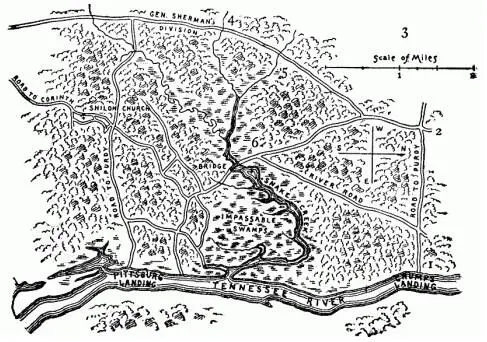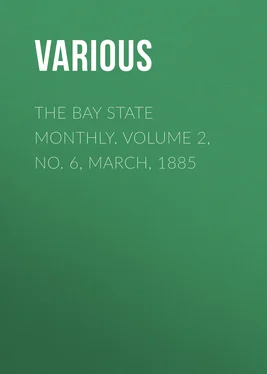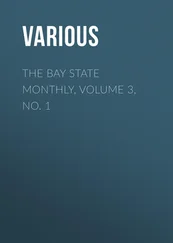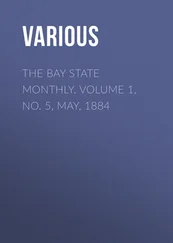Various - The Bay State Monthly. Volume 2, No. 6, March, 1885
Здесь есть возможность читать онлайн «Various - The Bay State Monthly. Volume 2, No. 6, March, 1885» — ознакомительный отрывок электронной книги совершенно бесплатно, а после прочтения отрывка купить полную версию. В некоторых случаях можно слушать аудио, скачать через торрент в формате fb2 и присутствует краткое содержание. Жанр: foreign_antique, periodic, foreign_edu, на английском языке. Описание произведения, (предисловие) а так же отзывы посетителей доступны на портале библиотеки ЛибКат.
- Название:The Bay State Monthly. Volume 2, No. 6, March, 1885
- Автор:
- Жанр:
- Год:неизвестен
- ISBN:нет данных
- Рейтинг книги:3 / 5. Голосов: 1
-
Избранное:Добавить в избранное
- Отзывы:
-
Ваша оценка:
- 60
- 1
- 2
- 3
- 4
- 5
The Bay State Monthly. Volume 2, No. 6, March, 1885: краткое содержание, описание и аннотация
Предлагаем к чтению аннотацию, описание, краткое содержание или предисловие (зависит от того, что написал сам автор книги «The Bay State Monthly. Volume 2, No. 6, March, 1885»). Если вы не нашли необходимую информацию о книге — напишите в комментариях, мы постараемся отыскать её.
The Bay State Monthly. Volume 2, No. 6, March, 1885 — читать онлайн ознакомительный отрывок
Ниже представлен текст книги, разбитый по страницам. Система сохранения места последней прочитанной страницы, позволяет с удобством читать онлайн бесплатно книгу «The Bay State Monthly. Volume 2, No. 6, March, 1885», без необходимости каждый раз заново искать на чём Вы остановились. Поставьте закладку, и сможете в любой момент перейти на страницу, на которой закончили чтение.
Интервал:
Закладка:
9th. That a movement at that time, toward Pittsburg Landing, would have taken General Wallaces' Division out of possible contact with the enemy, instead of supporting, and perfecting victory.
10th. That when the Division of General Wallace moved, as it did, within ten minutes after receipt of the orders, "impatiently waited for," it could see the distant smoke and hear the roar of battle, and moved directly toward the point of danger by the shortest route, with the greatest celerity and in harmony with the order received.
11th. That the defeat of the main army, the enforced retirement of Sherman's Division, and, in fact, the withdrawal of the entire original line, were new conditions, to be considered, when other Staff Officers notified General Wallace of the same; and then, the addition of his division to the rallying army, at Pittsburg Landing, seemed to be an important element to the very safety of that army, except as it could lean upon the divisions of Buel, already within supporting distance.
12th. That the original advance of General Wallace's Division on the Purdy Road, while thoroughly suited to the original conditions as they existed when the order was delivered to him, was, of necessity, useless and dangerous, when he found himself alone and unsupported, and that the enemy had already swept over the position which he expected to occupy.
13th. That there was no alternative, then, but to pass around the left of the enemy, and rejoin the army, at such expense of time or labor as the new conditions imposed; and that this was done, at great pains and with great celerity, without straggling or loss.
14th. That the prominent idea of withdrawing General Wallace's Division from Crump's Landing, to support the main army in its advance, is to be kept in mind;—whereby, confusion ceases as to the hour of the day when the order to report at Pittsburg Landing was delivered or became operative;—thereby, also, reconciling memories with the incidents of the day, with no discredit to any.
15th. That every theory of supporting an advanced line, from reserves sent forward from the base, must so bend to facts, that it may be the best thing possible, to strengthen the right of a successful line, even to overlapping and turning the enemy; and that such a movement has the emphatic endorsement of standard critics, and marked experience; while a formal movement to the rear, in order to move to the front and the right, as if on parade, would, under conditions such as presented to General Wallace, have been, simply, to wear out his men in marching, with small chance for taking any part in the assumed pursuit of a defeated enemy.
16th. That it is an unsound way of dealing with the facts of history, to gauge the responsibilities of officers and men, of small experience, by the rules which apply to the same officers and men after their experience has matured; and that, when the battle of Shiloh took place, and citizen regiments took part, with very slight knowledge of arms, it was equally true, that the officers themselves, both regular and volunteer, were proportionately unfamiliar with battle action on a large scale, and that, as a matter of fact, the Generals and Colonels, for the most part, had never seen a batallion drill, unless at West Point, much less drilled more than a company; and their conduct and opinions, in 1861-2, are not to be measured by the ripened experience of the years succeeding and succeeding years of reflection.
And finally, that the orders, movements, and results of the sixth day of April, 1862, must be judged by their relations to the passing hours and issues of that day, as practical men would act under changing conditions, and not by any formal order, which, however appropriate at one time, would, at any other time, defeat the work in hand. The Rules of Evidence, recognized by Civil and Military Courts alike, are but expressions of sound judgment of past experience; and Military Science, so called, has no other basis than that which belongs to the wise use of means to ends in all applied science and in all human endeavor. Whenever, therefore, the conduct of a battle is consistent with the conditions, as at the time understood, it is not exactly just to measure it by the terms of any instructions inconsistent with those conditions;—so that while an order to march to Pittsburg Landing became necessary upon the retirement of the original line, it ought not to be technically applied back to a time when that line was supposed to be sweeping on to victory and only sought fresh strength to mature that victory.
That a general action was precipitated by the Confederate forces under General Albert Sidney Johnson and was in the nature of a successful surprise of the Union Army, is the fact which harmonizes the reports of officers of both armies with the incidents of the day, and fairly distributes responsibility, without reflecting the narrow escape of the Union Army from destruction upon any single officer or command; especially, where all did so well, and so much is to be credited to the fall of General Johnson and the interruption of his deliberate plan, first to surprise, and then sweep on to victory, at whatever cost.
The Documents are as follows:
1st. Letter of Major General Lew Wallace to General U.S. Grant, February 26, 1869.
2nd. Letter of Lieutenant Colonel Ross, A.D.C. to General Wallace, January 25, 1868.
3rd. Letter of General J.A. Strickland to General Wallace, January 24, 1868.
4th. Letter of General G.F. McGinnis to General Wallace, February 20, 1868.
5th. Letter of General Fred. Knefler to General Wallace, February 19, 1868.
6th. Letter of Captain Ad Ware, A.D.C., to General Wallace (without date).
7th. Letter of General John M. Thayer to General Wallace, March 4, 1868.
8th. Letter of General U.S. Grant to General Wallace, March 10, 1868, commenting upon the letters cited and suggesting their publication, in justice to General Wallace.

The map of the Compte de Paris has been utilized. 1, 2 and 3 give location of Wallace's Brigades in line, perpendicular to the river, with right at Adamsville (3), 2. Concentration of Division. 4. Crossing at Snake creek to take the right of General Sherman. 4-5. Countermarch to lower crossing after retirement of the right. 6. Lower crossing which had for several days previously been under water. Wallace's division, on the 7th, held the right of Sherman, as indicated for the 6th, when he moved to take part in the general action.
General Wallace to General Grant:
WASHINGTON CITY, Feb. 29, 1868.
GENERAL:
About a year after the battle of Pittsburg Landing, it came to my knowledge, that I was suffering, in your opinion, from erroneous information upon the subject of my conduct and movements as commander of the Third Division of your army during the first day of the battle named. To place myself right in your estimation and in that of the army generally, I asked a Court of Inquiry, by letter to the Secretary of War (Mr. Stanton) July 17, 1863. After several months, during which the application received no attention from the Secretary, I withdrew it, by advice of friends, General Sherman amongst others. The course I then resolved upon, that counselled by General Sherman, was to carry my explanation directly to you; and such continued my intention until the battle of Monocacy, after which your treatment of me became so uniformly kind and considerate that I was led to believe the disagreement, connected with Pittsburg Landing, forgotten; a result, to which I tacitly assented, notwithstanding the record of that battle as you had made it, in the form of an endorsement on my official report, was grievously against me.
Читать дальшеИнтервал:
Закладка:
Похожие книги на «The Bay State Monthly. Volume 2, No. 6, March, 1885»
Представляем Вашему вниманию похожие книги на «The Bay State Monthly. Volume 2, No. 6, March, 1885» списком для выбора. Мы отобрали схожую по названию и смыслу литературу в надежде предоставить читателям больше вариантов отыскать новые, интересные, ещё непрочитанные произведения.
Обсуждение, отзывы о книге «The Bay State Monthly. Volume 2, No. 6, March, 1885» и просто собственные мнения читателей. Оставьте ваши комментарии, напишите, что Вы думаете о произведении, его смысле или главных героях. Укажите что конкретно понравилось, а что нет, и почему Вы так считаете.












